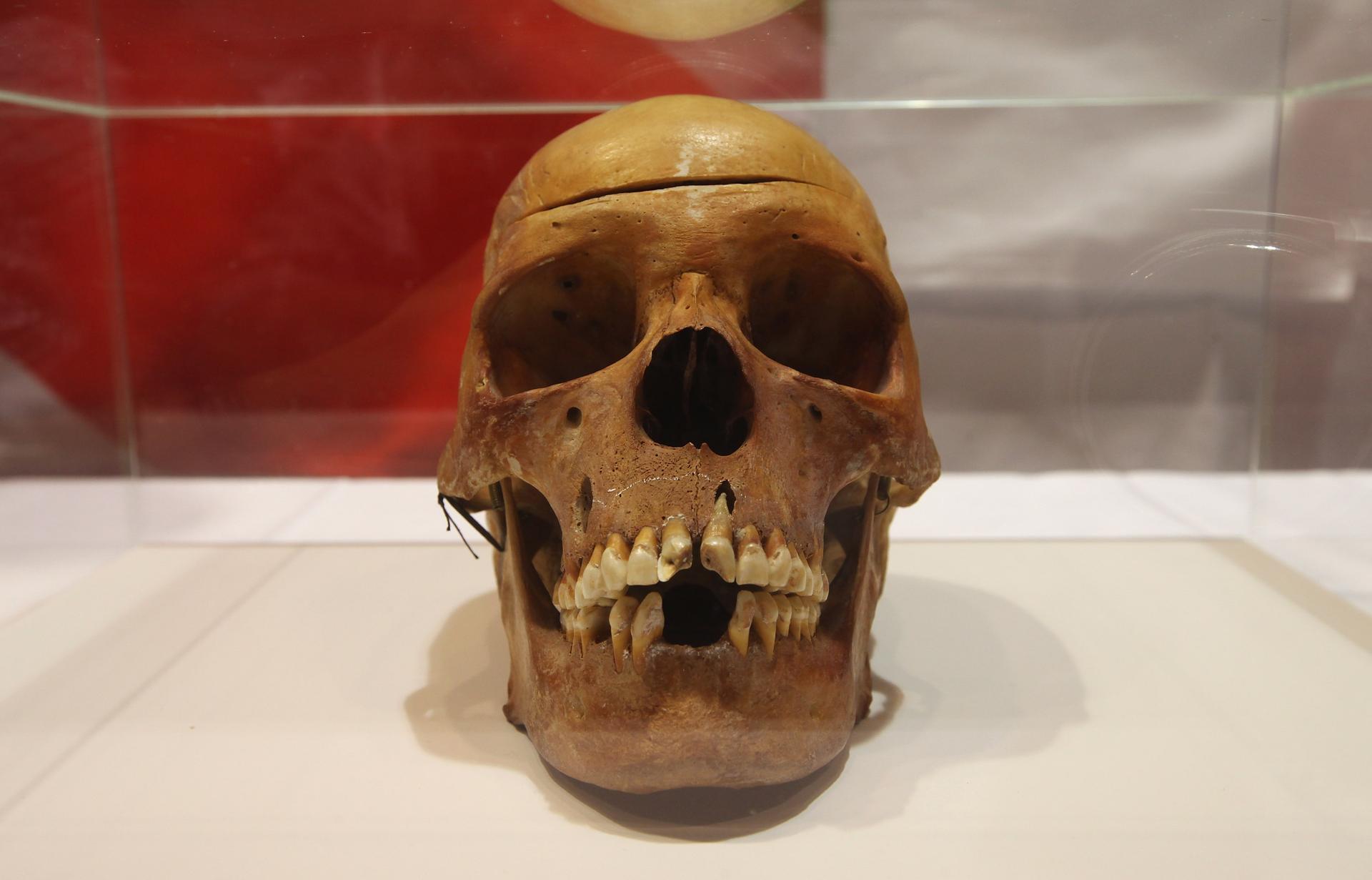Early humans ate more like chimps than people, says new study
A new study found the diet of early human resembled that of chimps.
Early humans ate like chimpanzees, a new study shows.
Researchers found bits of bark and leaves in the teeth of the ape-like, early human ancestor Australopithecus sediba that was discovered in South Africa in 2008.
The bits of food were trapped in tartar in the animals mouths and were stunningly preserved because of how they died.
"We think these two individuals fell down a sinkhole … and were quickly covered in very fine-grained sediment that created an environment of very little oxygen," Amanda Henry, lead author of the new study and a paleobiologist at Germany's Max Planck Institute for Evolutionary Anthropology, told National Geographic.
"So there wasn't a lot whole lot of bacteria or decomposition, and there certainly wasn't any interaction with the air."
More from GlobalPost: Mandela’s Village: South Africa’s road from Qunu
The findings suggest, according to the Los Angeles Times, that unlike other related species that ate grass from savannahs, our ancestors were woodsier creatures much like chimps, that climbed trees.
The findings may point to why some species survived longer as hominins (early human ancestors) habitat and diet began to vary.
"We've for the first time been able to put together three quite different methods for reconstructing diet and gotten one cohesive picture of the diet of this ancient species and that picture is really quite different from what we've seen in other hominins," said Henry, according to BBC.
"That's exciting, we're seeing a lot more variation among these species than we'd expected."
The study was published in the journal Nature.
The article you just read is free because dedicated readers and listeners like you chose to support our nonprofit newsroom. Our team works tirelessly to ensure you hear the latest in international, human-centered reporting every weekday. But our work would not be possible without you. We need your help.
Make a gift today to help us reach our $25,000 goal and keep The World going strong. Every gift will get us one step closer.
